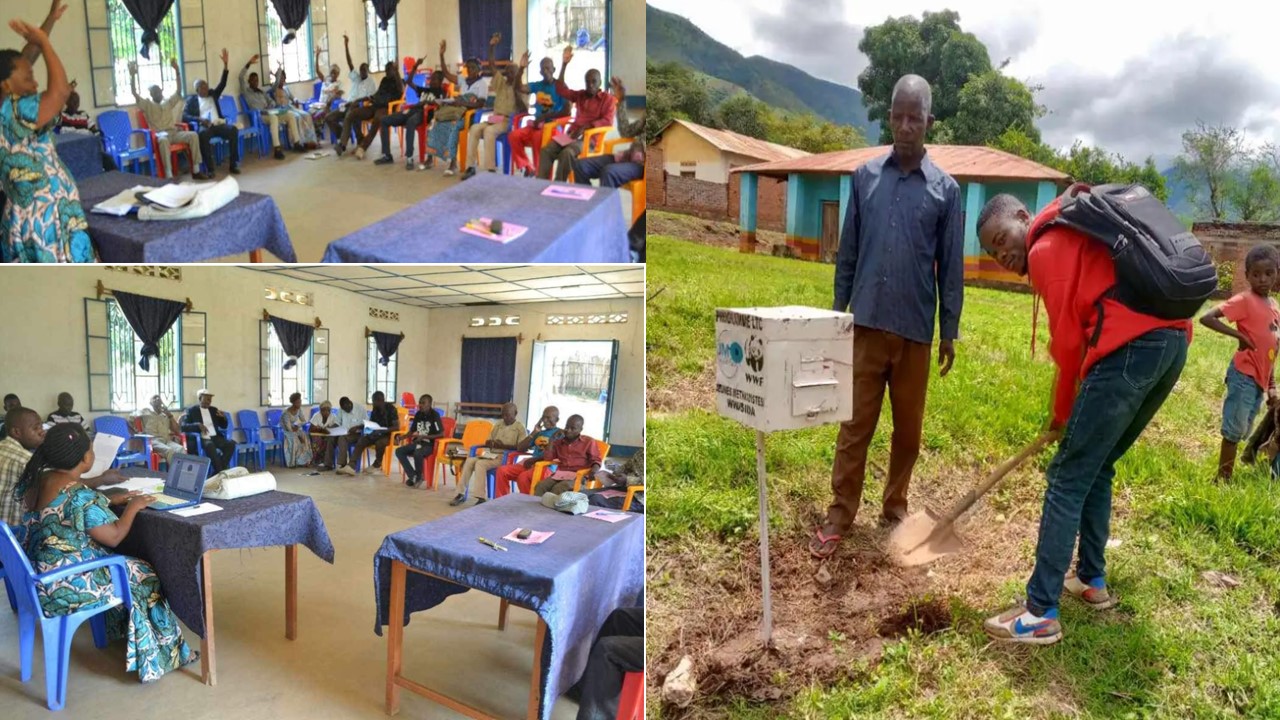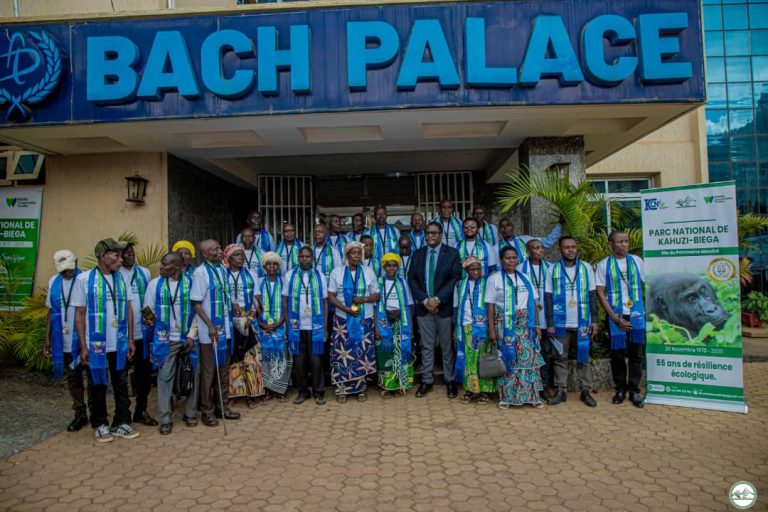
With financial support from WWF/DRC through its Leading the Change (LtC2) project, the Jeunes Méthodistes association is training local communities in the Tanganyika sector in complaint management.
Fizi, South Kivu: – Communities in the Tanganyika sector from the Balala Nord, Basimukuma Nord, Babungwe Nord and Basilocha groups have received training in complaints management, in line with the mechanisms for the sustainable management of natural resources. According to the organisers of the training, the Complaints Management Mechanism (CMM) is a method for preventing, collecting and processing requests and complaints. They added that this complaints management mechanism does not replace the legal channels for managing complaints, in particular recourse to the courts. However, according to the Young Methodists organization, this method ensures that concerns/complaints from stakeholders are promptly listened to, analyzed and dealt with, with the aim of detecting the causes, resolving them and taking corrective action, thereby avoiding any aggravation that goes beyond the control of the Leading the Change 2 project, and this mechanism is intended to be fast, effective, participatory and accessible to all stakeholders.
During the training, it was stated that the aim of this complaints management mechanism is to contribute to strengthening citizen governance by putting in place an effective procedure for managing complaints and other concerns of project stakeholders with a view to preventing conflicts of all kinds, providing an effective, transparent, timely, fair and non-discriminatory system that would enable aggrieved parties to complain and avoid disputes, It also aims to put in place a system for registering and managing complaints while ensuring that vulnerable groups are included, to promote the amicable settlement of complaints and to ensure the sustainability of the interventions of the organization Jeunes Methodists and its financial partner WWF/RDC and its ownership by all stakeholders.
The organizers of this training course explained that complaints can take the form of grievances, claims or denunciations. As far as grievances are concerned, the organizers specified that they are either an expression of dissatisfaction with the failure to comply with what has been agreed or an injustice about the quality or non-conformity of the services provided by the programme and its staff, the service providers and the implementation process. Speaking of complaints, the organisers refer to the demand to obtain what one believes to be one’s right to the payment of staff or workers’ wages and remuneration. With regard to denunciation, it was said that this concerns the reporting of the guilt of others in relation to a failure to respect human rights or an injustice involving corruption, embezzlement, theft, violence or sexual harassment, to name but a few.
This training course was organized in Mboko, capital of the Tanganyika sector, from 02 to 03 April 2024 by the association Jeunes Methodists, with financial support from WWF/DRC. The activity is taking place as part of the ‘Leading The Change 2’ project, with a view to the conservation of biodiversity and ecosystems by local communities. The aim of the two-day training course is to build the capacity of local communities in the Tanganyika sector, so that they can take ownership of the conservation and sustainable management of Natural resources.
For the Young Methodists association, the categories of complaints concerned include those relating to the governance of the project, corruption or fraud, extortion and misappropriation of funds or public property, failure to honour commitments made by the promoter, exclusion of people affected by the project, quality of equipment and materials provided, abuse of power and authority and non-transparency in the management of committees.
It was confirmed during the training that as part of this complaint’s management mechanism, the leaders of the Young Methodists organization will make six-monthly visits to the groups concerned to receive complaints from the communities and respond to them. Apart from these rounds, when the communities are unable to send their complaints to the Jeunes Methodists office in Uvira and cannot read and write, the communities send the complaints to the members of the management committees and the management committee informs the Jeunes Méthodistes coordination of the relevance of the complaint. If the response is to be given by the management committee, it receives authorization from the Young Methodists Co-ordinating Office to give responses. If the response is to be given by the Young Methodist Association, then the Young Methodist Co-ordinator sends a person to give the response to the complaint.
| Complaints management mechanism installed in Mboko, Fizi territory |
However, once the communities have put their complaints in the suggestion box, the leaders of the Young Methodists association visit each quarter to collect the complaints available in the suggestion boxes. In this case, the Young Methodists coordinator responds to the complaint either by sending the letter or by sending a facilitator to the field to respond to the communities. In the same training, it was shown that when communities are not satisfied with the handling of their complaint or the response given to the complaint, they inform Jeunes Méthodistes by telephone or via the management committee. In this case, Jeunes Méthodistes forwards the community complaints to WWF/RDC, which in turn responds to the community.
The organisers of this two-day training course confirm that complaints management is one of the effective mechanisms for the participatory management of natural resources, in a vision where communities live in perfect harmony with nature while exercising and equitably enjoying their right to a healthy environment. Satisfied with this training, the authorities and members of the communities undertook to raise awareness among members of the entire communities in the Tanganyika sector in various groups, so that they would be able to lodge their complaints and claims with the Young Methodists organisation and its financial partner WWF/DRC via the above-mentioned channels.
The participants thanked the Jeunes Méthodistes organization and its financial partner WWF/DRC for this initiative, which will undoubtedly promote the management of complaints at local level, to the benefit of the local communities of the Tanganyika sector as a whole, without exception.
They asked the organisers of the training to continue to support them in monitoring and evaluating the implementation of the material learned during the two days. It should be noted that the representative of the Tanganyika sector chief and the chiefs of the Babungwe Nord and Basimukuma Nord groups attended the training.
- Watchdog media






